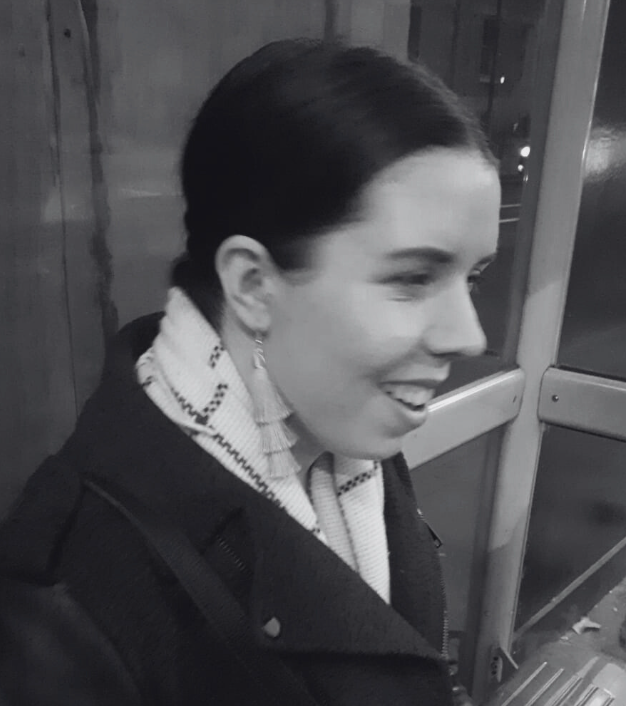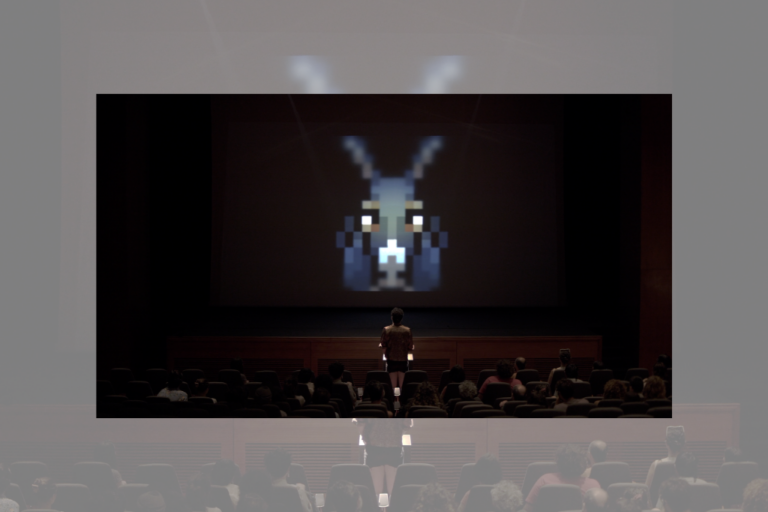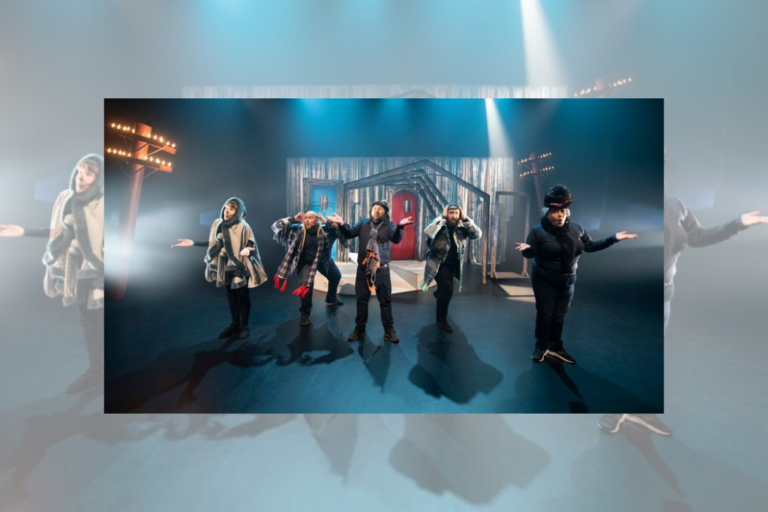REVIEW: Feu Mr. Feydeau! takes charming liberties with a famous playwright’s life
Writer Sébastien Bertrand is no stranger to creative acts of historical imagination. His two previous projects with Théâtre français de Toronto (TfT) — Filles du Roi (2003), and the web series Liaisons dangeureuses: Correspondances inédites (2022) — took liberties with icons of French culture. The former turned the voyage of young single women from France to what we now call Canada in the 1600s into a feminist reappraisal of Molière. The latter saw Bertrand write an additional series of letters for Pierre Choderlos de Laclos’s famous epistolary novel of deception and decadence, fleshing out the female character’s perspective.
Bertrand’s works act as both homage and critique of literary titans, and Feu Mr. Feydeau!, his new show with TfT, follows firmly in these footsteps, although its tread is much lighter.
Feu Mr. Feydeau!, which Bertrand also directs, is a farce set in a sanatorium during the famous farceur Georges Feydeau’s last days of life (in French, the genre in which Feydeau wrote is also called vaudeville). It’s 1921, and after a failed marriage, countless affairs, and a career in theatre qualified by as many misses as hits, Feydeau (Mathieu Bourassa) is cynical, worn out, and living with syphilis-related dementia. The only piece of writing he is working on is his obituary, and this is how the play opens: With a pronouncement of his death.
This little paper declaring his demise sets off a series of misunderstandings that propel the author into a madcap comedy not unlike his plays. Mr. Jean (Adam Paolozza), who the play describes as a chronic amnesiac, stumbles upon the paper and believes it to be true. He announces the tragic news, which draws the attention of Feydeau’s ex-wife Marianne (Stéphanie Broschart), who comes to claim whatever she can from his estate, even if it’s a ring pried from his cold, dead hands.
At one point in the play, Feydeau describes himself as more of an observer than a participant, and after his false death sets off the show’s chain of events, he almost takes on the role of voyeur in his own life. The unexpected emotional core of the show is another patient, the renowned chemist Marie Curie (Patricia Marceau). She is dying of cancer from her work with radiation and still grieving her husband, who passed away years ago. Her stoicism and her clear-eyed view of life, as well as her love of a strong martini and a dry quip, makes her a stalwart presence among the cheerful chaos.
Speaking of chaos, the best mayhem on stage comes from Paolozza, who guilelessly takes on whatever identity is up for grabs (when he puts on a doctor’s coat, he’s a physician; when he discovers a toolbox, he’s the handyman), and Broschart, who goes from devastated widow to seductress at the drop of a pale pink hat (and matching lace gloves, brocade coat, and mink stole, in the clever costume design by Michelle Tracey). Their different performance styles work beautifully together: A scene in which she delivers a heavily gesticulated speech while he tries to pour her a drink is a highlight of the show.
But there may be less mayhem than one would expect from farce, and there isn’t the nightmarish quality typical of Feydeau’s work, in which it seems things tend to go a little too far off the rails for the characters to fully come back. Instead, the tone here is melancholy, reflective, and ultimately optimistic. Even Glenn Davidson’s set and lighting design inspire calm, with cool blue tones, chic furniture and warm sunsets. And elements of the play that might be subversive, like an openly queer relationship or the treatment of mental illnesses in the 1920s, are handled gently and delivered without much bite. Feu Mr. Feydeau! is an effortlessly enjoyable historical fantasy that takes on death, the creative act, and life’s bittersweet disappointments.
Feu Mr. Feydeau! ran at TfT from October 24 to November 3. You can learn more about TfT here.
Intermission reviews are independent and unrelated to Intermission’s partnered content. Learn more about Intermission’s partnership model here.















Hmm. No mention whatsoever of Feydeau’s own 1908 play “Feu la mère de Madame”. It’s based on a mistaken death announcement, too – perhaps there’s more to it than that?